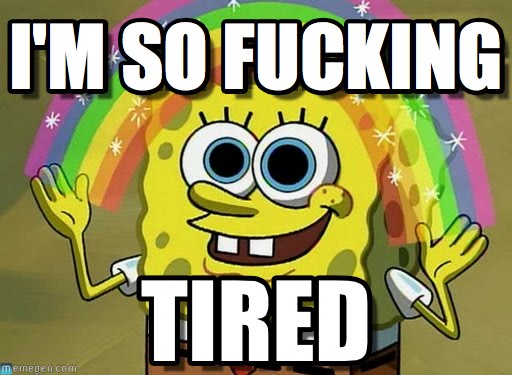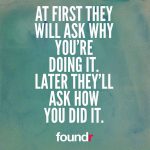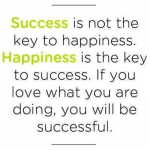In case you missed part 1, here you go.
Read it? All right, let’s continue.
-
Social media.
This basically translates to engage with your audience.
For that, WordPress is A-okay. Just make sure to follow the tags that are pertinent to your genre and engage with people who might actually be interested in your work. For example: this post is bad business for me, because my audience isn’t built of indie writers. So why am I writing this?
Beats me, buddy. I guess I just want to help. Which brings me to: watch out for your content. No one likes a whiner or someone who’s always with a negative attitude. Write fun, attention grabbing posts that provide some kind of value to your reader. Also remember: don’t write long posts, people don’t have time for that crap (yes, I can appreciate the irony. Yes, this post is huge.) And every now and then, try to make a sale, but don’t overdo it.
I also suggest Facebook and Twitter. FB has been really good to me, a LOT more than any other platform. People also use Pinterest and others. Goodreads is super hyped, but it hasn’t done much for me this far, so I’ve actually given up on that one. Maybe Goodreads works for you, so do your research. And choose the platform you’re most comfortable with.
-
Make your own author website.
This is annoying as F***. I suck at coding and techie stuff, and since this series is for indies on tight budgets, I can’t hire a web developer.
If you’re a technological dimwit like me, you probably won’t be able to grasp wordpress.org, which leaves you with wordpress.com. And wordpress.com is okay, but far from great. For example: you can’t capitalize on a wordpress.com site, which is really upsetting if you consider that you’re paying $99 a year to have your own domain. There are other alternatives to wordpress.com/org, but none as good, cheap or with such wide reach. If you have one, make sure to let us know in the comments.
Anyway, using the wordpress forums is a pretty great place to start taming your wordpress.com website.

Get used to it, buddy.
-
Learn how to market your book.
Most people need a little guidance when it comes to promoting their books (it’s a science within itself). If I were to write everything I’ve learned (in detail), we would, quite literally, end up with a full 90k book. So I recommend Nick’s course. It’s not cheap, but I’ve had some cool results thanks to that course. For the FREE alternatives, follow Joana Penn, Lindsay Buroker, and Jane Friedman.
-
Figure out your audience.
How old are they, what is their gender, what’s their day-by-day, what do they like, what do they read, what movies do they watch, etc? Once you know this, you will know how to target your audience. FB ads are a rather cheap option and you can get nice results with only $20. But it’s definitely a tough learning curve and it can get frustrating at times. Mark Dawson seems to have a pretty successful course about it, but I haven’t tried it.
-
Figure out which promotion websites work best for you.
There’s a TON of websites which will promote your book to their lists. The most famous ones are Bookbub or Freebooksy, but if you get accepted, you will need to pay a LOT. There’s a ton of cheaper options though, like Book Gorilla and The Choosy Bookworm. Always do your research and then ask other indie authors what’s their experience with these websites. Be careful though: Some of them do NOT pay off. Also, success can be highly dependent on genre. Last but not least, the website could actually be a scam, so doing your research is really important.
-
Manage free book campaigns and kindle countdown deals.
Because you have to coordinate those promotions with your book’s pricing.
-
If your website allows it, use Amazon associate links.
So you can get a little extra revenue here and there. And if you’re in wordpress.com, this won’t work for you. Why? WordPress.com doesn’t allow you to capitalize on your website (only if you use their own ad platform). And no, it isn’t fair, but that’s life.
-
Be a Friend
We’re in this together. Support other indie authors such as yourself, make connections. Talk to each other, learn from each other, discuss marketing strategies with each other. Arrange group promos, anything. GROW together.
-
Start a mailing list.
This is the top priority for any indie author, which makes me wonder why I left it for last.
Anyway, platforms can change their conditions, who knows, maybe one day Amazon, iBooks, Googleplay and Kobo decide to break up with indies altogether (impossible, but bear with me). Or maybe they just close down like B&N and the soon to be extinct Nook. But a mailing list is the direct way to reach your readers. I can’t emphasize this enough: Your mailing list is how you sell books to the people who matter (a.k.a. the awesomest people in the world).
By now you’re probably pretty scared. And let me tell you, this is not even 70% of all the marketing strategies out there. It mutates, you know: some things work for certain genres, others don’t. Some work for a while (like blog reviews) and then stop being efficient. So you have to experiment and see what works best. Get creative (you and I both know you’re very good at that, otherwise you wouldn’t be a writer).
The cool thing is, after a while, you will start having fun. Especially when you see the results of all your effort. You know, when people start picking up your stuff and telling you how much they liked your work. When you engage with your readers and they engage right back. And when you earn your first bucks as a writer.
So here’s some motivation for you.
See ya next time!






Reblogged this on Official DJ Morand Author Site and Blog and commented:
I absolutely love C.S. Wilde, she is just a gem. I shared Part 1 of this series, now for Part 2. Read it! No really read it! It is the best.
Just cause I noticed it, you have a tag for ‘how to market your bok’ pretty sure it wasn’t intentional. Also, loved this! Reblogged it because yar it is that good. Keep it up!
Ahw you’re the best ^_^
You paid for Nick Stephenson’s course? I watched the free videos, but nearly ended up in hospital when I saw the price of his premium course.
Lol you can split it up in four payments I think? And I got it when he first launched, so the price must’ve increased since then?
Anyway, it was worth it. I got huuuge help when it came to the technical and marketing stuff too.
I got the invites at the launch date and the price was eye watering then. (I also got a message saying I was too late to enroll. Gutted, I was. Gutted.)
I need to keep these tips in mind when I hopefully become a writer like you
Hopefully? More like you WILL become a writer like me! : D
Totally agree with “Be A Friend”–we writers are in this together. And, frankly, I write because I love to read. And, as an avid reader, I really don’t see authors as competition to each other–a good story is a good story. 🙂 Congrats on your huge accomplishment! Looking forward to Friday!!
You said it all, my dear. <3 I am scared to death that people will hate the book, but it's part of the process *sigh*
I think maybe using godaddy is a little cheaper but maybe not by a lot. Hey, I think you’ve given me an idea. I can set up a Web design business online. 🙂
Awesome : D
I’m no author but this looks like a hell of a playbook for all indie authors!
You know I’m so incredibly proud of you Clara. :’) I remember the time I started reading your blog (the Princess Kickass one) and I had no notion that one day this hilarious and awesomesauce woman is gonna be a badass writer one day, and I hope a bestselling one soon :’) Can’t wait for the release <3
Ohw Potahto, you put the biggest smile on my face!<3 <3
You deserve ALL the smiles, love ^_^ <3